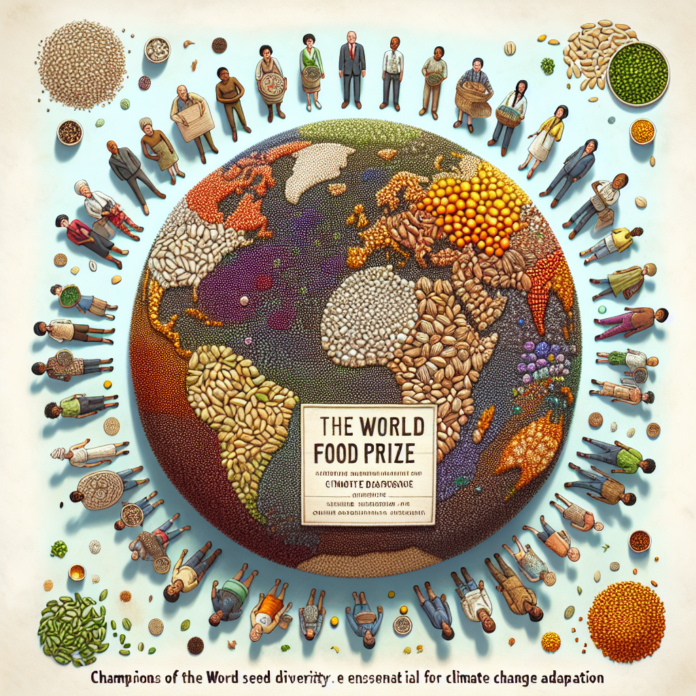World Food Prize Winners Highlight Importance of Seed Diversity for Climate Adaptation
World Food Prize Winners: The Importance of Preserving Seed Diversity in Adapting to Climate Change
The prestigious World Food Prize has recently highlighted a critical issue that is gaining increasing attention in the global agricultural community: the preservation of seed diversity as a vital strategy for adapting to climate change. This annual award, which honors individuals or organizations making significant contributions to improving the quality, quantity, or availability of food in the world, has underscored the essential role of biodiversity in creating resilient food systems.
The Role of Seed Diversity
Seed diversity refers to the variety of different plant species and genetic strains available for cultivation. This diversity is fundamental for food security as it provides the genetic material necessary to breed crops that can withstand the challenges posed by climate change, such as extreme weather conditions, pests, and diseases. By maintaining a wide array of genetic resources, farmers and researchers can develop new crop varieties that are more resilient to these adverse conditions, thus ensuring a stable food supply.
Why Is Seed Diversity Important?
The genetic variation found within seeds allows for adaptation to changing environments. As the climate continues to fluctuate, crops bred from a diverse genetic pool are more likely to survive and thrive. This adaptability is crucial not only for sustaining agricultural productivity but also for maintaining the nutritional quality of food. Diverse crops can offer a range of nutrients, which is essential for human health.
Global Efforts in Preserving Seed Diversity
Efforts to preserve seed diversity are taking place at both local and global levels. Seed banks around the world, such as the Svalbard Global Seed Vault in Norway, play a vital role in storing and protecting seeds from various plant species. These facilities act as insurance policies for global agriculture, safeguarding genetic resources for future generations.
Moreover, initiatives promoting farmer-managed seed systems are also gaining traction. These systems empower local farmers to save, exchange, and cultivate a wide variety of seeds, thereby preserving local biodiversity and cultural heritage. Such grassroots efforts are crucial in maintaining the genetic diversity necessary for a resilient agricultural future.
The Way Forward
To effectively leverage seed diversity in combating climate change, concerted efforts are needed from policymakers, scientists, and farmers. Investment in research to develop climate-resilient crops, education on the importance of seed diversity, and supportive policies that encourage biodiversity conservation are essential steps forward.
The emphasis placed by the World Food Prize on seed diversity serves as a reminder of the interconnectedness between biodiversity and food security. As the world faces the growing challenges of climate change, preserving and enhancing seed diversity will be key to ensuring a sustainable and resilient food future for all.


